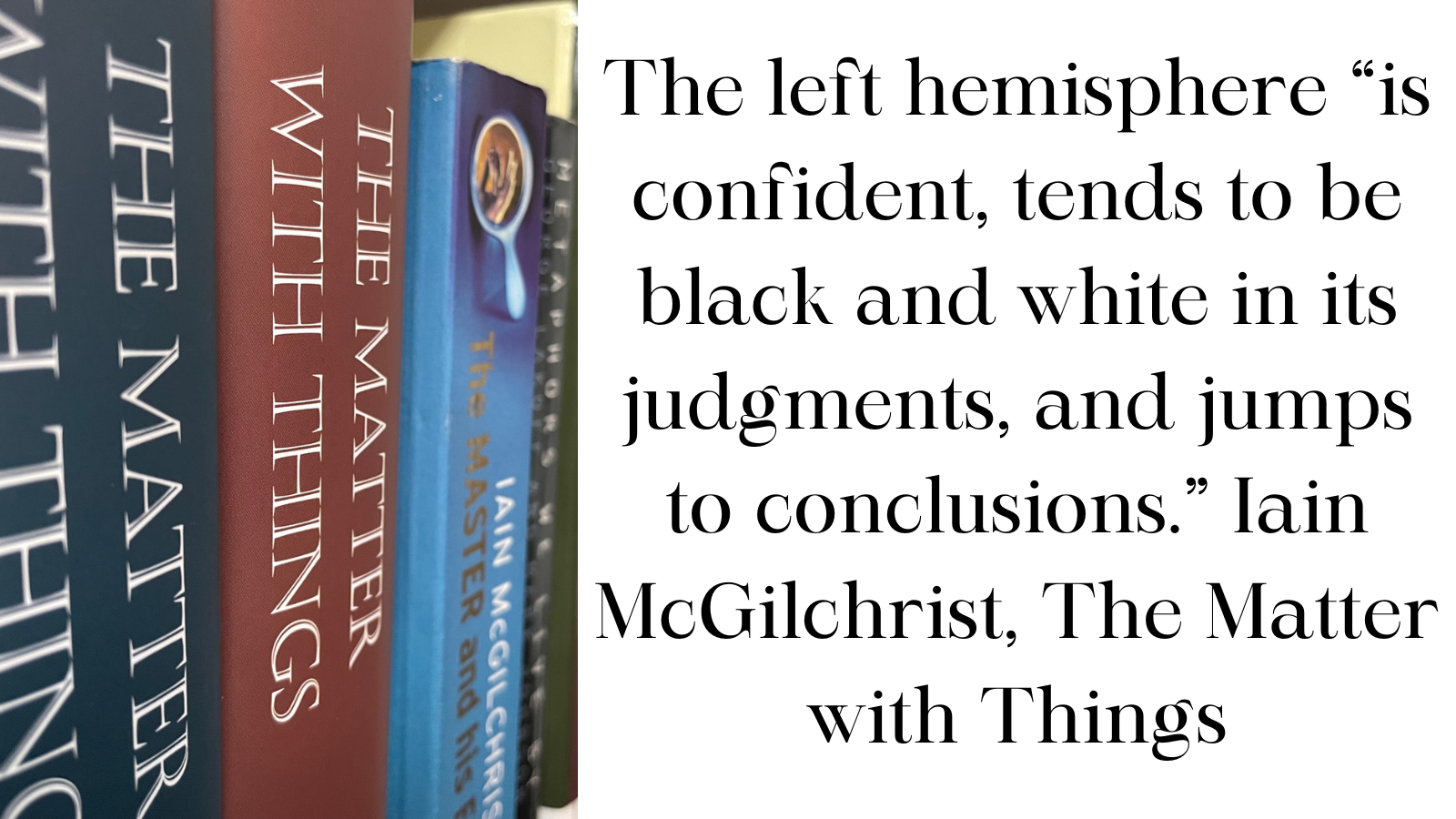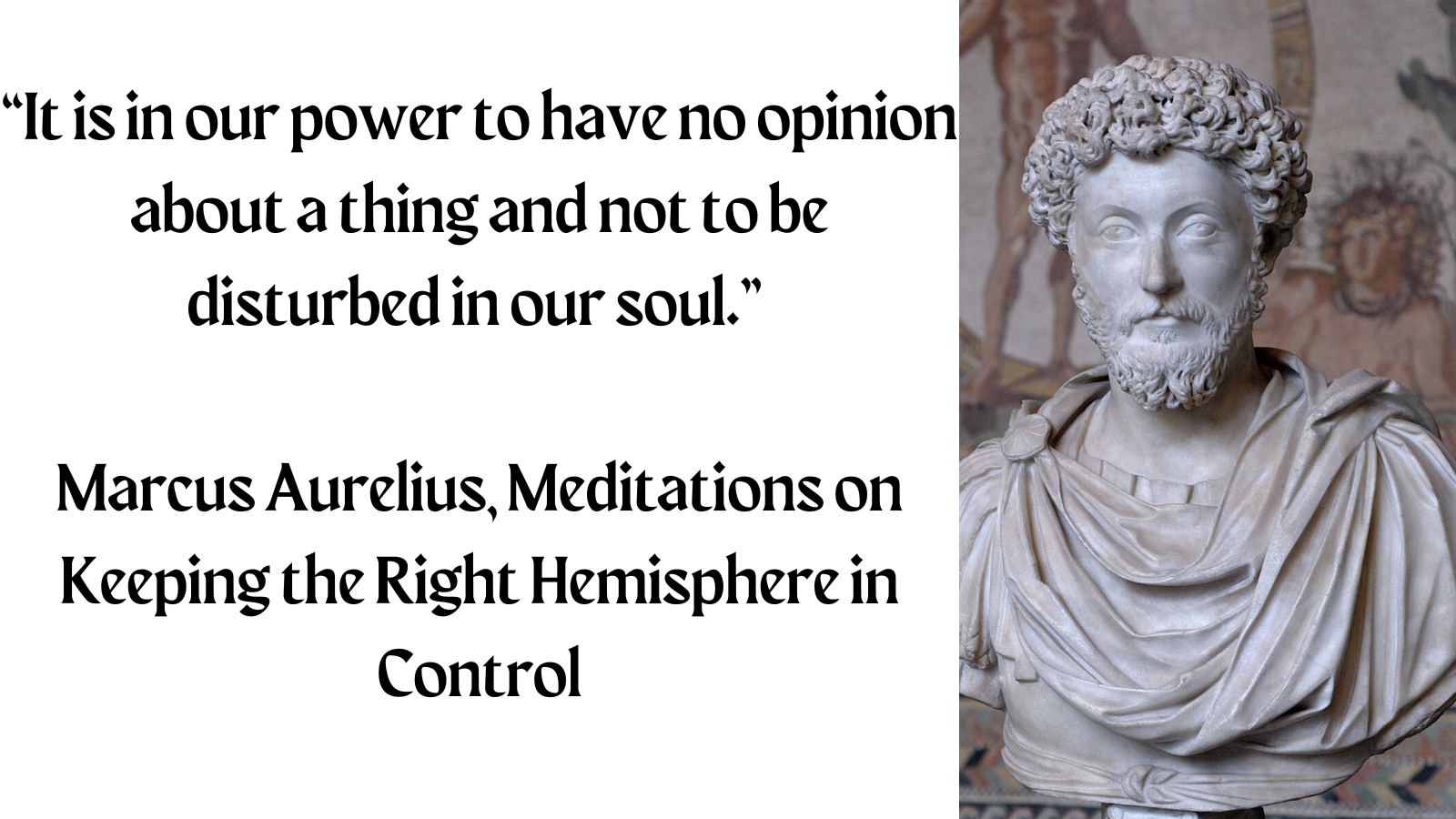Your Opinions Stink

John of Montmirail liked to fight. He was a leading knight in battle; he jousted in peace.
But then he had a religious conversion and dedicated his resources to helping the poor, including the establishment of a hospice in his castle.
He once went to help a woman whose dying sores smelled so bad, that she was put in a separate room. John went into the room, dang near gagged, and rushed out. The matron in charge scolded him,
It is the stink of your sins that you smell.(1)
It was a bizarre response. I always figured it was a medieval, non-sensical, melodramatic declaration by an overly pious woman.
Enter McGilchrist.
Not all emotions are created equal. Some are positive. Some are negative. And even emotions within the same category are better than others.
Consider sadness and disgust. They're both negative emotions, but sadness is associated with greater creativity and disgust with less creativity.
Sadness is also more right hemisphere-related.
Disgust is more left hemisphere-related (so is anger, btw).
Enter John of Montmirail's nostrils.
The dying woman's stench grossed him out.
What happened? Let's break it down:
(1) Stench enters nostrils . . . (2) John's brain says, "This is gross; get out" . . . (3) John flees.
But what did John's brain really say in step (2)?
It said, "John, this is gross [detrimental, harmful] to us; get out."
"To us."
John fled because his brain had formed a harsh and uncompromising opinion. It may have been an understandable opinion; it may have been a correct opinion.
But it was an opinion and an adamant one.
Guess what hemisphere of our brains likes to form opinions?
The left hemisphere.
It is the hemisphere of action, and action requires a clear notion of how to act, which in turn requires a series of convictions. The left hemisphere needs opinions (little conclusions) to get the body through the day. As a result, it naturally gravitates toward opinions.

Opinions come from the left hemisphere's role as hunter, gatherer, and predator. Opinions are, in other words, self-serving. And it's a good thing: by forming judgments, we make good decisions (e.g., "In my opinion, I'll lose a fight with that rhino, so I'm going to climb that tree instead").
But that doesn't change the fact that opinions are self-serving and ought to be used cautiously and as little as possible.
And if the opinion is negative, it should be handled very cautiously.
Harsh judgments are a left-hemisphere specialty.
And so is disgust, which is just a harsh judgment resounding at an emotional ("gross") or even physical ("gag") level.
With all that, the matron's harsh words to John are more understandable.
She said he was merely smelling his sins. Neuroscience tells us he was merely reacting with his left hemisphere.
There's a huge overlap in the Sin-Left Hemisphere Venn Diagram that screams for monitoring by the right hemisphere.
Blessed John went back into the room and tended to the woman's nasty wound by placing her covers over his head as well.
Even the matron thought John had "over-corrected." (Heck, it makes me nauseous, 900 years and an ocean away.)
But John disagreed. He said the stench had turned sweet, saying, "It was my sins that stank so foully."
Like a good emissary, John's left hemisphere rang the alarm that something was terribly wrong and he fled by instinct. There's nothing wrong with that: when a tiger suddenly appears, you need to accept the raw, unadulterated information and respond immediately. It's the left hemisphere in its glory.
But then the information needs to be processed and looked at in light of the greater whole. Maybe it is a tiger . . . but it's behind thick plexiglass at the zoo. You'd look like a moron to run screaming out of the zoo's Big Cat House.
That's where the right hemisphere comes in. It takes the information and places it in full context, even taking into account intangibles like the nature of sin and one's frailties, and proposes a better response.

